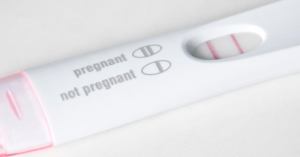Al Roker is back on the Today show two weeks after undergoing a five-hour surgery to remove his prostate, as well as the surrounding lymph nodes and tissue, at New York City’s Memorial Sloan Kettering Cancer Center. The 66-year-old weatherman returned to the studio to deliver the forecast Monday, reuniting with co-hosts Savannah Guthrie, Hoda Kotb, Carson Daly and Craig Melvin following his cancer diagnosis and treatment.
“Great medical care and the love of friends and family — it goes a long way,” Roker said of his health. When Guthrie celebrated that everyone was back together, albeit socially distanced, Roker said that he feels “good,” adding with a laugh, “Let me tell you, after that first week you can get that catheter out. I’m feeling good!” Roker then explained he’s been trying to exercise as part of his recovery, even getting a little TMI for his co-stars. “I’ve got something that I share with [wife Deborah Roberts] and all of you ladies who have children: I’m Kegel-ing right now,” Roker said, prompting Kotb to reply, “Nobody wants to know about that!”
Videos by PopCulture.com
“I feel good, I really do,” says @AlRoker. We’re checking-in with our good friend Al who is back in studio 1A after receiving surgery for prostate cancer just two weeks ago. pic.twitter.com/ZHdjJqyfDY
— TODAY (@TODAYshow) November 23, 2020
Last week, Roker called into the studio via video chat to give an update on his prognosis, which doctors say looks good following the surgery. “It was this great relief. For a first start, this is terrific news. I’m going to be up for — and a lot of people who live with cancer — up for lifelong testing to make sure this doesn’t come back,” Roker said, adding later, “I feel good. The technology has gotten so good – they did it with a robot – that I felt much better after the surgery than I did with any of my joint replacements.”
Roker first announced his cancer diagnosis on Nov. 6, telling his co-stars, “I don’t want people thinking, ‘Oh, poor Al,’ you know, because I’m gonna be OK.” The morning show personality first was diagnosed with cancer after doctors determined an elevated prostate-specific antigen in his bloodwork during a routine physical, which prompted an MRI and biopsy. “When [the doctor] started, he closed his door and said, ‘I always like to have these discussions face to face,’” he recalled of getting his diagnosis the first time. “And I was like, ‘Uh-oh. Well, that doesn’t sound good.’ …You hear the word ‘cancer’ and your mind goes, it’s the next level, you know?”








